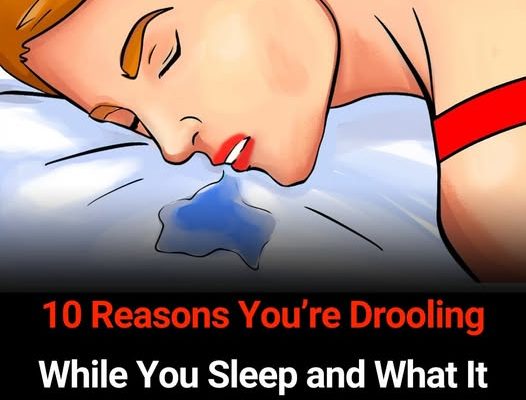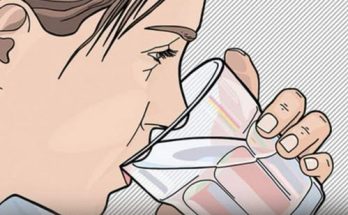Drooling during sleep is something many people experience, often without even realizing it until they wake up to a wet pillow. While it might seem harmless or even humorous, frequent nighttime drooling can sometimes indicate underlying health conditions. Here are ten possible reasons why you might be drooling while you sleep and what each one could suggest about your health.
1. Sleeping Position
The most common reason for drooling is your sleeping position. When you sleep on your side or stomach, gravity causes saliva to escape from your mouth more easily. This is generally harmless and can be managed by adjusting your sleeping posture.

2. Mouth Breathing
If you tend to breathe through your mouth at night, this can lead to excessive drooling. Mouth breathing may occur due to nasal congestion, allergies, or anatomical issues like a deviated septum. Chronic mouth breathing can lead to dry mouth and other oral health problems as well.
3. Sinus Infections or Allergies
Blocked nasal passages from allergies or sinus infections can force you to breathe through your mouth, increasing the chances of drooling. Treating the root cause of the congestion can help reduce drooling episodes.
4. Gastroesophageal Reflux Disease (GERD)
GERD or acid reflux can stimulate excessive saliva production, especially when lying down. The body produces more saliva to neutralize stomach acid, which may leak out during sleep. If drooling is accompanied by heartburn or sour burps, GERD might be the cause.
5. Sleep Apnea
Sleep apnea is a serious sleep disorder where breathing repeatedly stops and starts. People with sleep apnea often sleep with their mouths open, which can lead to drooling. Other symptoms include loud snoring, choking during sleep, and excessive daytime fatigue. This condition requires medical attention.
6. Neurological Disorders
Certain neurological conditions, such as Parkinson’s disease, stroke, or cerebral palsy, can affect the muscles responsible for swallowing. This makes it harder to manage saliva, increasing drooling. If drooling is accompanied by muscle weakness or difficulty speaking, it’s important to consult a doctor.
7. Side Effects of Medication
Some medications, especially those for psychiatric conditions, can increase saliva production or impair your ability to swallow. If you notice drooling after starting a new medication, consult your healthcare provider.
8. Enlarged Tonsils or Adenoids
In children and adults, enlarged tonsils or adenoids can obstruct normal breathing and force mouth breathing. This increases the likelihood of drooling during sleep. In some cases, surgery might be recommended.
9. Infections or Dental Problems
Infections in the mouth, such as tonsillitis or tooth abscesses, can trigger excessive saliva production. Dental issues like braces or ill-fitting dentures may also interfere with proper mouth closure, leading to drooling.
10. Poor Swallowing Reflex (Dysphagia)
Some individuals have difficulty swallowing their saliva during sleep, a condition known as dysphagia. It can be caused by aging, nerve damage, or underlying health issues. If swallowing becomes difficult even during the day, medical evaluation is essential.
Conclusion
While occasional drooling during sleep is usually not a cause for concern, frequent or excessive drooling can indicate deeper health issues. Paying attention to other symptoms like snoring, difficulty breathing, or swallowing problems can help identify the underlying cause. If you’re worried about your nighttime drooling, don’t hesitate to speak with a healthcare professional. A simple change in sleeping habits or the right treatment can often resolve the issue—and help you wake up to a dry, comfortable pillow.

